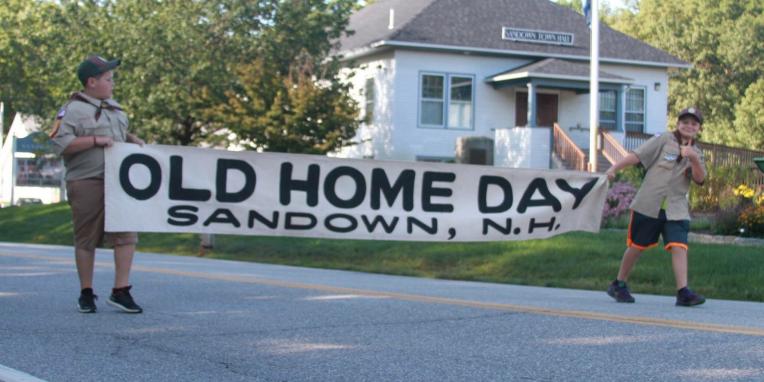Firearms Information
Title XII - Public Safety and Welfare
Chapter 159 - Pistols and Revolvers
159:4 Carrying Without License – This law has been relealed as of February 22nd, 2017.
159:6 License to Carry
I. (a) The selectmen of a town, the mayor or chief of police of a city or a full-time police officer designated by them respectively, the county sheriff for a resident of an unincorporated place, or the county sheriff if designated by the selectmen of a town that has no police chief, upon application of any resident of such town, city, or unincorporated place, or the director of state police, or some person designated by such director, upon application of a nonresident, shall issue a license to such applicant authorizing the applicant to carry a loaded pistol or revolver in this state for not less than 5 years from the date of issue, if it appears that the applicant has good reason to fear injury to the applicant's person or property or has any proper purpose, unless the applicant is prohibited by New Hampshire or federal statute from possessing a firearm. Hunting, target shooting, or self-defense shall be considered a proper purpose. The license shall be valid for all allowable purposes regardless of the purpose for which it was originally issued.
(b) The license shall be in duplicate and shall bear the name, address, description, and signature of the licensee. The original shall be delivered to the licensee and the duplicate shall be preserved by the people issuing the same for 5 years. When required, license renewal shall take place within the month of the fifth anniversary of the license holder's date of birth following the date of issuance. The license shall be issued within 14 days after application, and, if such application is denied, the reason for such denial shall be stated in writing, the original of which such writing shall be delivered to the applicant, and a copy kept in the office of the person to whom the application was made. The fee for licenses issued to residents of the state shall be $10, which fee shall be for the use of the town or city granting said licenses; the fee for licenses granted to out-of-state residents shall be $100, which fee shall be for the use of the state. The director of state police is hereby authorized and directed to prepare forms for the licenses required under this chapter and forms for the application for such licenses and to supply the same to officials of the cities and towns authorized to issue the licenses. The form shall require no more information than was required on the state of New Hampshire application for pistol/revolver license, form DSSP 85, as revised in December 2009. No other forms shall be used by officials of cities and towns. The cost of the forms shall be paid out of the fees received from nonresident licenses.
II. No photograph or fingerprint shall be required or used as a basis to grant, deny, or renew a license to carry for a resident or nonresident, unless requested by the applicant.
III. The availability of a license to carry a loaded pistol or revolver under this section or under any other provision of law shall not be construed to impose a prohibition on the unlicensed transport or carry of a firearm in a vehicle, or on or about one's person, whether openly or concealed, loaded or unloaded, by a resident, nonresident, or alien if that individual is not otherwise prohibited by statute from possessing a firearm in the state of New Hampshire.
159:6-a Confidentiality of Licenses
Notwithstanding the provisions of RSA 91-A:4 or any other provision of law to the contrary, all papers and records, including applications, pertaining to the issuance of licenses pursuant to RSA 159:6 and all licenses issued pursuant to said section are subject to inspection only by law enforcement officials of the state or any political subdivision thereof or of the federal government while in the performance of official duties or upon written consent, for good cause shown, of the superior court in the county where said license was issued..
Questions and Answers
Where can I and can I not carry?
By state law (RSA 159:19), the only place you can’t have a gun is a courthouse or courtroom. By federal law, there are two places where you can’t carry.
Here are the two federal laws:
- Title 18, United States Code, Section 930 prohibits firearms (and also knives with blades longer than 2-1/2 inches) in federal “facilities,” meaning buildings. (Note that this includes post offices.)
- Title 18, United State Code, Section 922, paragraph (q) is the Gun Free School Zones Act. You can’t have a gun in, on the grounds of, or within 1,000 feet of the property line of, an elementary or secondary school, whether public or private. (Note that this doesn’t include colleges or universities.)
What about private businesses/property?
On private property (including stores, theaters, restaurants, etc.), the property owner can set a “no guns” policy. A “No Firearms” sign posted on private property does not carry the weight of law but they can ask you to leave if you’re carrying, and have you arrested for trespassing if you don’t leave. You will not have violated NH law related to carrying a firearm but you will be violating their company policy and NH trespassing statutes if you don’t leave when you are asked.
Can I carry my firearm “openly” (unconcealed)?
The NH Attorney General’s Office has stated that open carry is regarded as a "Right", and though any citizen may call the police if they observe someone carrying a gun openly, that citizen's "annoyance and alarm" does not override the "Right" to carry openly. The police are obligated to investigate the citizen's complaint, but once it is determined that there is no substance to the complaint, the citizen openly carrying should be allowed to carry on with his/her business. Obviously in the post 9/11 age if people observe you openly carrying a firearm it may cause them to be concerned and to report you to the police. Once such a report has been made you can expect to be identified and questioned to determine if there is an actual threat.
What are the laws in New Hampshire concerning use of force?
RSA 627:4 Physical Force in Defense of a Person;
I. A person is justified in using non-deadly force upon another person in order to defend himself or a third person from what he reasonably believes to be the imminent use of unlawful, non-deadly force by such other person, and he may use a degree of such force which he reasonably believes to be necessary for such purpose. However, such force is not justifiable if:
I. A person is justified in using non-deadly force upon another person in order to defend himself or a third person from what he reasonably believes to be the imminent use of unlawful, non-deadly force by such other person, and he may use a degree of such force which he reasonably believes to be necessary for such purpose. However, such force is not justifiable if:
(a) With a purpose to cause physical harm to another person, he provoked the use of unlawful, non-deadly force by such other person; or
(b) He was the initial aggressor, unless after such aggression he withdraws from the encounter and effectively communicates to such other person his intent to do so, but the latter notwithstanding continues the use or threat of unlawful, non-deadly force; or
(c) The force involved was the product of a combat by agreement not authorized by law.
II. A person is justified in using deadly force upon another person when he reasonably believes that such other person:
(a) Is about to use unlawful, deadly force against the actor or a third person;
(b) Is likely to use any unlawful force against a person present while committing or attempting to commit a burglary;
(c) Is committing or about to commit kidnapping or a forcible sex offense; or
(d) Is likely to use any unlawful force in the commission of a felony against the actor within such actor's dwelling or its curtilage.
II-a. A person who responds to a threat which would be considered by a reasonable person as likely to cause serious bodily injury or death to the person or to another by displaying a firearm or other means of self-defense with the intent to warn away the person making the threat shall not have committed a criminal act.
III. A person is not justified in using deadly force on another to defend himself or herself or a third person from deadly force by the other if he or she knows that he or she and the third person can, with complete safety:
(a) Retreat from the encounter, except that he or she is not required to retreat if he or she is within his or her dwelling, its curtilage, or anywhere he or she has a right to be, and was not the initial aggressor; or
(b) Surrender property to a person asserting a claim of right thereto; or
(c) Comply with a demand that he or she abstain from performing an act which he or she is not obliged to perform; nor is the use of deadly force justifiable when, with the purpose of causing death or serious bodily harm, the person has provoked the use of force against himself or herself in the same encounter; or
(d) If he or she is a law enforcement officer or a private person assisting the officer at the officer's direction and was acting pursuant to RSA 627:5, the person need not retreat.
RSA 627:7 Use of Force in Defense of Premises;
A person in possession or control of premises or a person who is licensed or privileged to be thereon is justified in using non-deadly force upon another when and to the extent that he reasonably believes it necessary to prevent or terminate the commission of a criminal trespass by such other in or upon such premises, but he may use deadly force under such circumstances only in defense of a person as prescribed in RSA 627:4 or when he reasonably believes it necessary to prevent an attempt by the trespasser to commit arson.
RSA 627:8 Use of Force in Property Offenses;
A person is justified in using force upon another when and to the extent that he reasonably believes it necessary to prevent what is or reasonably appears to be an unlawful taking of his property, or criminal mischief, or to retake his property immediately following its taking; but he may use deadly force under such circumstances only in defense of a person as prescribed in RSA 627:4.
Resources:






